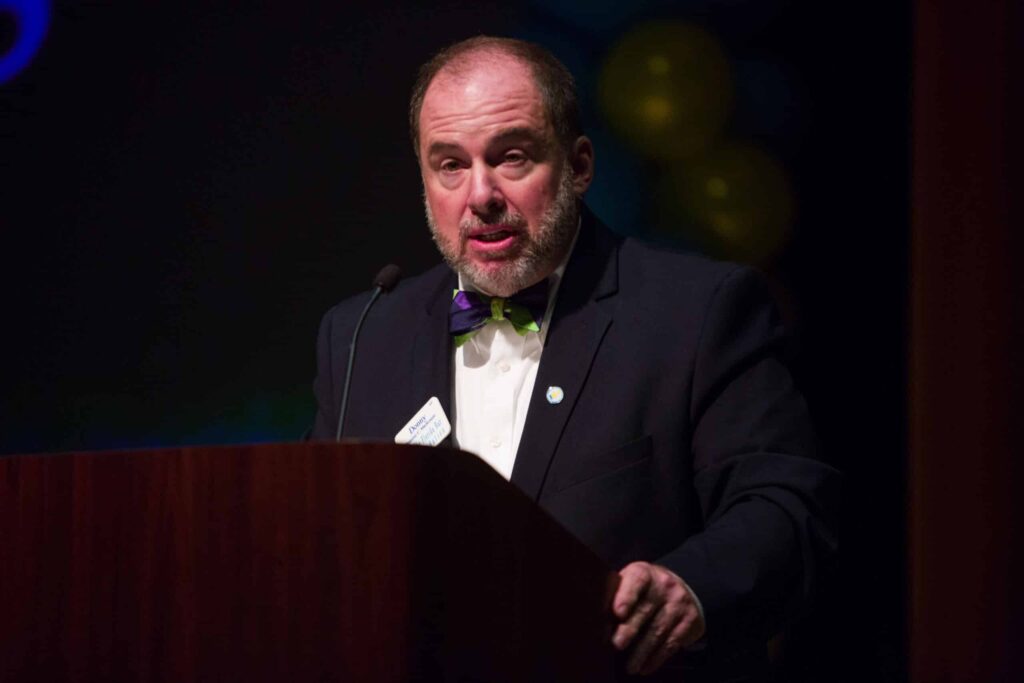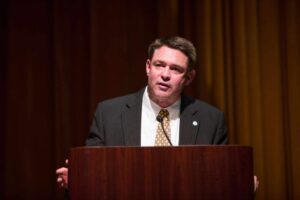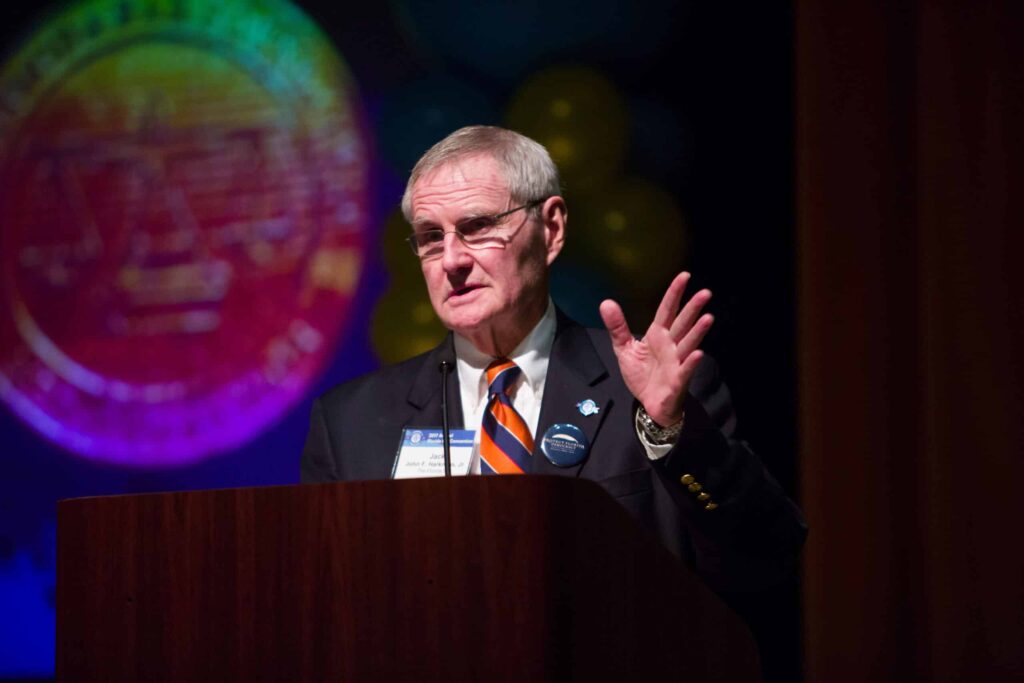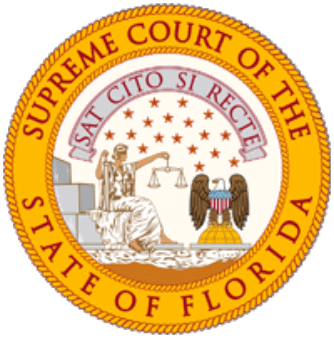A year after unanimously resolving to adopt a “strategic reset,” The Florida Bar Foundation’s board of directors June 22 approved a document detailing the approach the organization will take in its future grant making, as well as the rationale for moving the organization in a new direction.
The action comes in the wake of eight years of drastically reduced revenue from Florida’s Interest on Trust Accounts (IOTA) program, which almost a decade ago generated nearly $44 million a year, but has yielded less than $6 million annually for the last several years. It also resulted from the board’s collective recognition of a changing legal landscape and of the need to embrace and develop technology and help craft a newer and better legal delivery system for all Floridians.
“Given the fact that there will never be enough lawyers nor sufficient funds, the Foundation must be a leader in developing an improved, more accessible and more efficient delivery model,” the document states, pointing out that even when the Foundation’s funding was at its highest level, “only a fraction of the legal needs of the poor” were being met.

“While the Foundation’s mission of expanding access to justice in Florida remains the same, the board in recent years arrived at the overall consensus that the approach to achieving that mission needs to change in order for the Foundation to continue to have an enduring and significant impact,” said Donny MacKenzie, a past president of the Foundation and chair of its strategic reset committee.
The document approved by the Foundation board sets forth three primary strategies: 1) maximize the impact and effectiveness of civil legal assistance to low- and moderate-income individuals and communities in Florida; 2) expand the role of The Florida Bar Foundation as an expert and facilitator of effective civil legal assistance; and 3) serve as a catalyst for broad-based systemic change and innovative solutions to reduce and eliminate the civil justice gap in Florida.
Foundation board member Judge Ed Scales of the Third District Court of Appeal spoke about the strategic reset in his keynote address at the Foundation’s annual dinner, held just hours after the board’s endorsement of the reset document. Scales explained that the Foundation will no longer be making “traditional IOTA grants,” alluding to the Foundation’s decades-old approach of broadly distributing general support funds to local legal aid organizations based on the poverty population of the area.

“The Foundation instead has revised its mission so that it’s going to try to use its limited resources to help those local grantees become more effective in delivering services, and on a broader level to develop and implement more effective overall strategies to provide lower-income Floridians better access to civil justice. Those new strategies will emphasize technology, pro bono service, and the exploitation of untapped resources.”
The Foundation will use its funding to create incentives for its grantees to collaborate with each other and with other nonprofits and social service agencies working to solve complex social and systemic problems faced by Florida’s poor. It will invest in projects with clearly focused goals and objectives and measureable outcomes, especially ones that are sustainable and use best practices. This will include funding pilot projects and the expansion of projects that have proven effective, providing seed money, offering matching grants, investing in improvements and technological advances, building the capacity of advocates and organizations, developing pro bono partnerships, providing professional development opportunities for public interest and volunteer lawyers, and engaging law students in public service through projects such as a restored Summer Fellows program.
“All of these things are in keeping with what foundations – both inside and outside the legal services arena – are doing nationally and internationally,” MacKenzie said. “These are the very strategies in place on the leading edge of philanthropy in America and elsewhere today.”
The Foundation itself will also seek to collaborate with other funders and will put resources into efforts such as a study released earlier this year showing that legal aid generates $7 of economic impact for every dollar invested, as well as a planned statewide legal needs assessment. These initiatives help build the case for civil legal aid funding and guide the allocation of scarce resources. Meanwhile, the Foundation will work to establish a widely recognized brand for civil legal aid in Florida in order to help legal aid organizations statewide garner greater support.
As is the case with the Florida Commission on Access to Civil Justice established by Chief Justice Jorge Labarga in 2014, the Foundation’s new strategic initiatives encompass moderate-income, as well as low-income Floridians. But MacKenzie points out that doesn’t mean the Foundation is abandoning traditional legal aid.
“What is means is that we recognize that many of the most effective ways of expanding access to justice for low-income Floridians will also serve those in the lower middle class who still can’t afford legal representation in every instance,” MacKenzie said. “It means we believe we can help make the administration of justice in Florida better for everyone.”
Scales confesses he was skeptical about the reset at first. He argued that the board should commit to an independent assessment in the coming years to gauge its effectiveness, which the board approved.
“It is my sincere hope that when we then reflect on our Foundation’s inventive, dynamic, bold experiment – the Strategic Reset Initiative – it will be bearing fruit, providing far more access to civil justice than merely divvying out depleting IOTA funds,” Scales said in his speech.
Florida Bar Executive Director Jack Harness, upon accepting the Foundation’s Medal of Honor Award for a lawyer at the annual dinner, signified his support for the Foundation’s new direction.

“I also have to echo what Ed Scales said in his report about the future of the Foundation,” Harkness said. “The way I look at it is I am talking to the choir, no question about it. But you need a new song, you really do, or a couple new verses, at least. The old pro bono, lawyers are going to do everything, lawyers are going to give all the money, does not work. It cannot work. The problem is too big. We have got to reach out to other people, other entities, other ways, in order to accomplish our goal.”
Florida Bar Foundation CEO Bruce Blackwell said the strategic reset is designed to do just that.
“I couldn’t have said it better,” he said.
The full text of the strategic reset document approved by The Florida Bar Foundation board is available at www.TheFloridaBarFoundation.org/reset.




